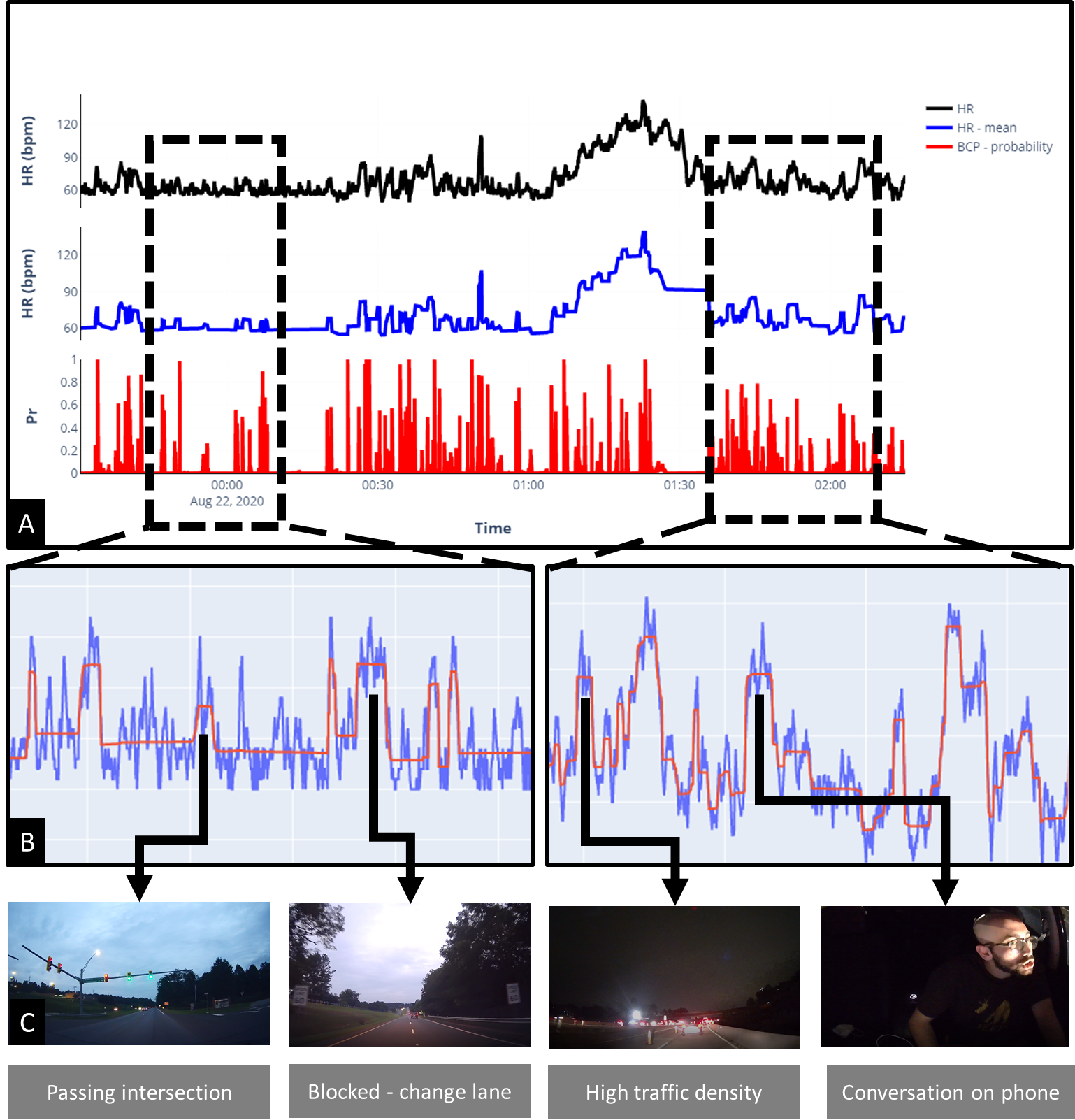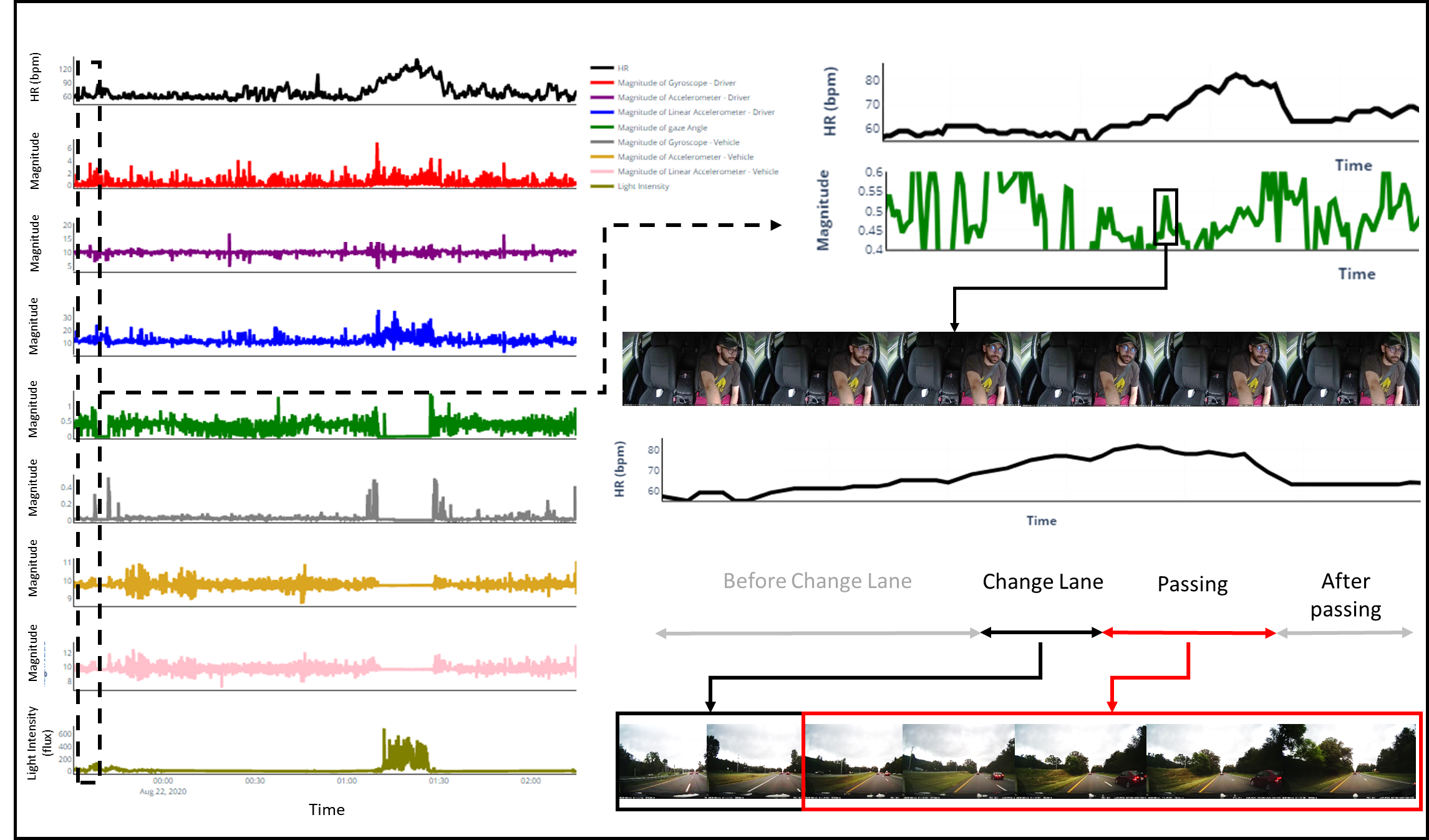In this project, we demonstrate how different driving events can affect a driver’s state through the driver’s biosignals (e.g., heart rate (HR)). Using our collected data through HARMONY, we have analyzed changes in a driver’s HR time series in a specific 2-hour trip. We applied Bayesian Change Point (BCP) detection methods to the driver’s heart rate and retrieved specific moments that a change in HR is detected. We show that these change points are correlated with certain events in the environment. For instance, factors such as being blocked by a lead vehicle, or stress due to passing an intersection can be accompanied by a change point in the driver’s HR.
Summary

Additionally, we have observed that the changes in driver’s state due to environmental attributes can stay for an extended period of time even after the event is concluded. This is all owed to the HARMONY framework for retrieving driver’s state measures in real-time longitudinally.

Below we showcase this example through a short video. The driver feels blocked by the lead vehicle and performs a change lane. Driver’s HR starts to elevate as he feels frustrated by the lead vehicle. After the change lane is concluded, the driver’s heart rate stays elevated for the full duration of passing the lead vehicle. It is only after passing the vehicle that the HR starts to come back to its normal value.
Related Publication
Tavakoli, A., Kumar, S., Guo, X., Balali, V., Boukhechba, M., Heydarian, A., (2021). HARMONY: A Human-centered Multimodal Driving Study in the Wild, Accepted to the Journal of IEEE ACCESS

Arsalan Heydarian
Principal Investigator

Arash Tavakoli
Graduate Research Assistant

Xiang Guo
Graduate Research Assistant